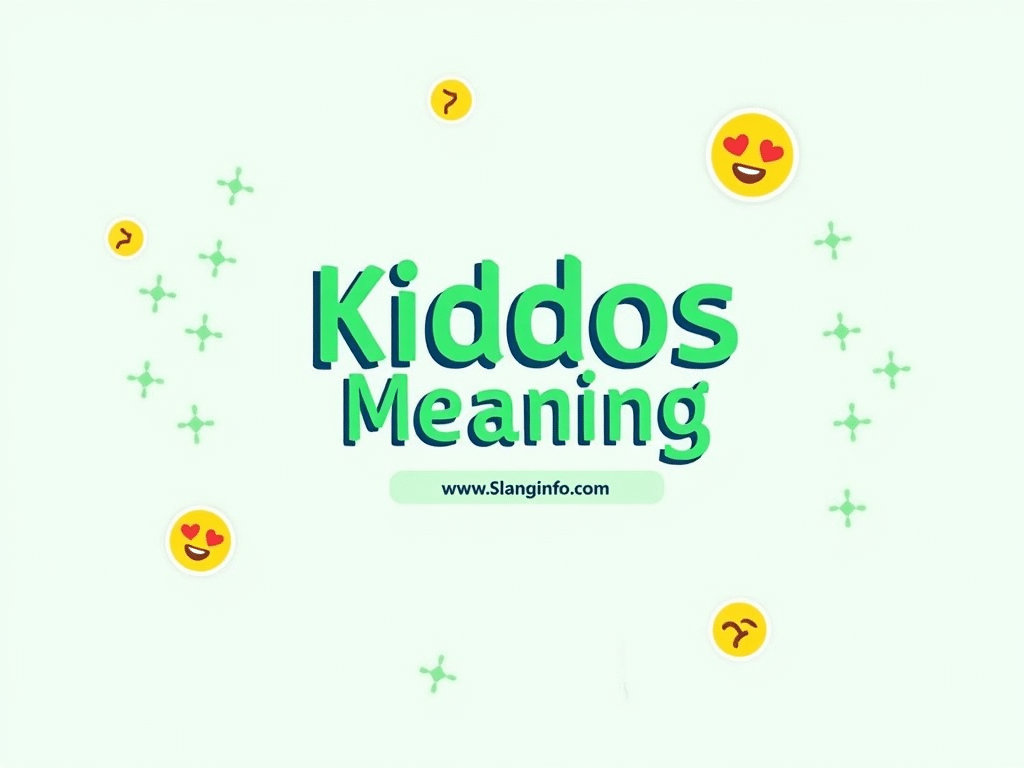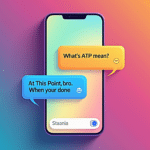Hey there, language lovers! Today we’re diving into the world of “kiddos,” that cute and cuddly term that’s been popping up everywhere from family barbecues to teacher lounges. If you’ve ever heard someone say, “Time to round up the kiddos!” and wondered what the fuss was about, you’re in the right place. Let’s unpack this playful piece of slang and see why it’s got everyone talking!
| Key Takeaways |
|---|
| “Kiddos” is an affectionate term for children |
| Often used in casual, friendly contexts |
| More playful than formal terms like “children” |
| Popular in family settings and educational environments |
| Can be seen as either endearing or slightly cringeworthy |
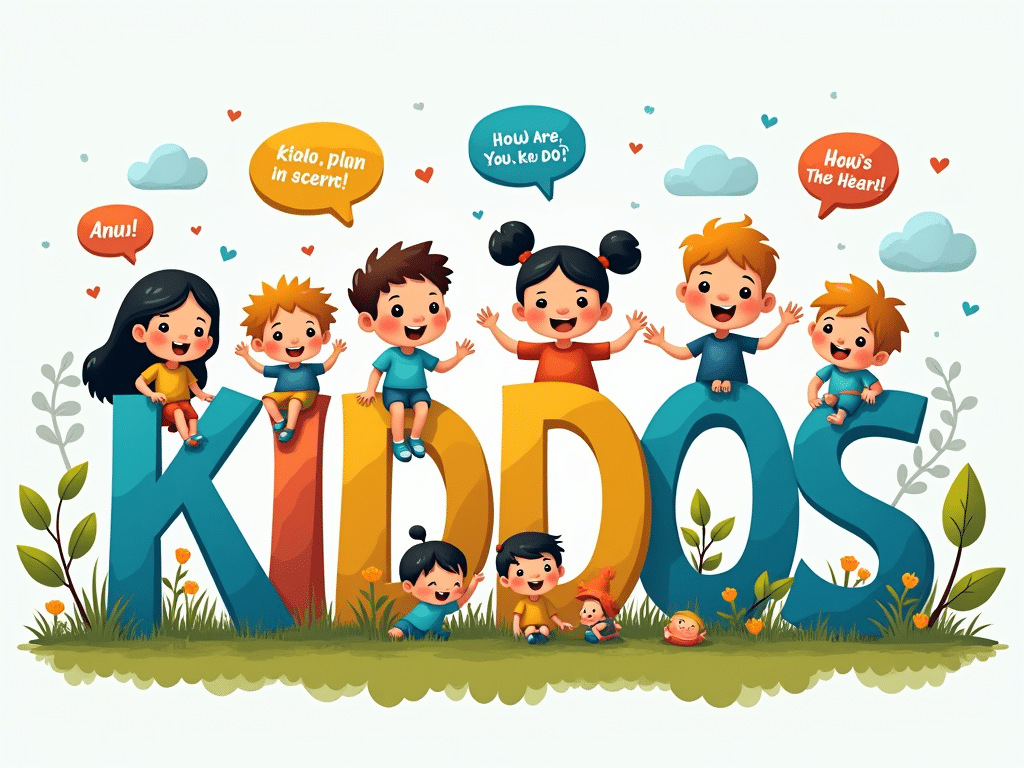
Kiddos Meaning: When “Kids” Just Isn’t Cute Enough 🎈
Kiddos Meaning: Alright, let’s break it down. “Kiddos” is basically a fun, affectionate way to say “kids” or “children.” It’s like adding a little bow tie to the word “kids” – it dresses it up and makes it feel more playful. When someone says “kiddos,” they’re usually talking about children in a warm, friendly way.
Think of it like this: if “children” is the fancy restaurant version, and “kids” is the everyday cafeteria version, then “kiddos” is the fun, weekend barbecue version of the word. It’s casual, it’s friendly, and it’s got a bit of a wink to it.
Kiddos Meaning in Text: In the world of texting and social media, “kiddos” might pop up like this:
- “Just dropped the kiddos off at school. Coffee time! ☕”
- “Family movie night with the kiddos. Popcorn everywhere! 🍿”
- “Any other parents struggling to keep their kiddos entertained this summer?”
It’s a way to talk about kids that feels a bit more personal and less formal. It’s like giving a virtual hug to the concept of children.
Also read: Popcorn Emoji 🍿
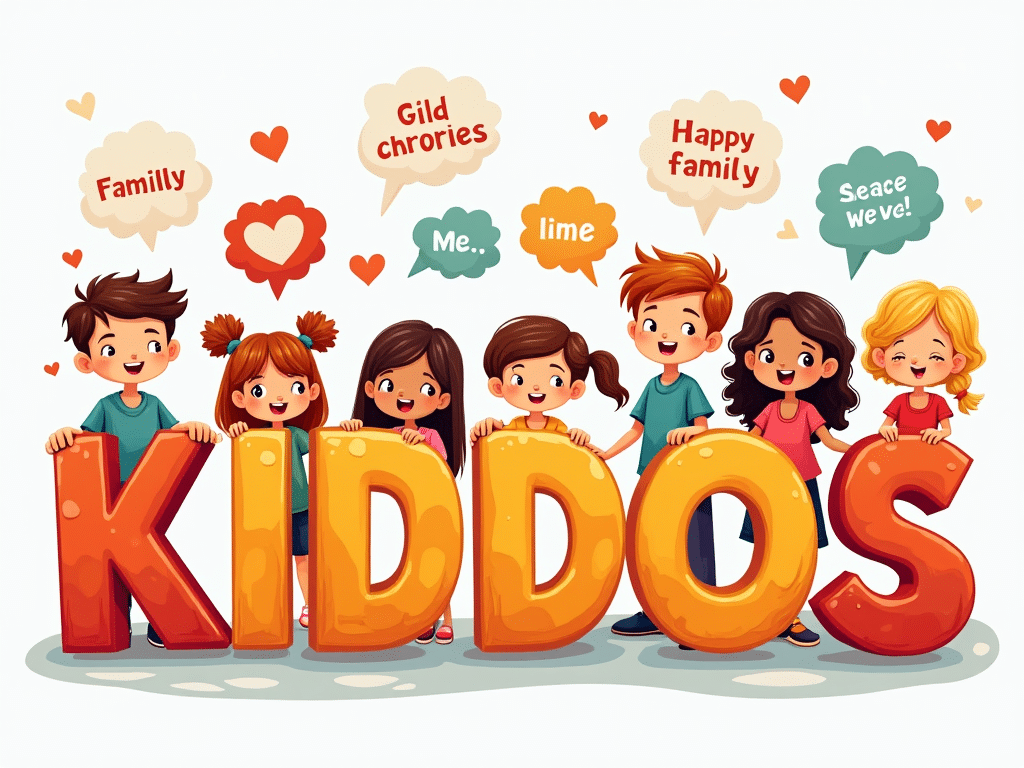
The Evolution of Kiddos: From Slang to Mainstream 🚀
“Kiddos” didn’t just appear out of thin air. It’s been around for a while, slowly working its way into our everyday language. Here’s a quick history lesson:
- Early 1900s: “Kiddo” (singular) shows up as a friendly way to address a young man or boy.
- Mid-1900s: It starts to be used for children in general, not just boys.
- Late 1900s/Early 2000s: “Kiddos” (plural) takes off, becoming a popular way for parents and teachers to refer to groups of children.
- Today: You’ll hear “kiddos” everywhere from school newsletters to mommy blogs to dad jokes.
I remember when I first started teaching, and a veteran teacher said to me, “Ready to wrangle the kiddos?” It felt so much friendlier than saying “students” or “children.” It was like being welcomed into a special club where we all agreed that working with kids was both challenging and fun.
Also read: Nostalgic
Kiddos in Different Contexts: Not Just for Parents Anymore 🏫
While “kiddos” might have started as a parent thing, it’s spread its wings and flown into all sorts of situations. Here’s where you might spot it:
- Family Gatherings: “Can the kiddos play in the backyard while the adults chat?”
- Schools: “Alright, kiddos, time to line up for lunch!”
- Social Media: “Beach day with the kiddos! #FamilyFun”
- Community Events: “Face painting for the kiddos at the festival this weekend!”
It’s like a secret code that says, “I’m talking about kids, but in a fun, informal way.” It’s the linguistic equivalent of a playful hair ruffle.
Kiddos vs. Other Kid Words: A Friendly Face-Off 🥊
“Kiddos” isn’t the only player in the game of what to call young humans. Let’s see how it stacks up:
- Children: The formal, grown-up way. You might use this when talking to your kid’s principal.
- Kids: The everyday term. Casual, but not as playful as kiddos.
- Little ones: Sweet and gentle, often used for very young children.
- Youngsters: A bit old-fashioned, like something your grandpa might say.
“Kiddos” is like the cool aunt or uncle of these terms – fun, friendly, but still responsible enough to be used by adults in charge.
If you’re curious about other fun slang terms that have taken over our language, check out our article on “savage”. It’s another word that’s gotten a whole new life in modern slang!
Also read: LOML
The Psychology Behind Using Kiddos: Why We Love to Get Cutesy 🧠
Ever wonder why some people can’t resist saying “kiddos” instead of just “kids”? There’s actually some psychology behind it! Using cute, playful language like “kiddos” can:
- Create a sense of warmth and friendliness
- Make talking about responsibilities feel more fun
- Help adults connect with their own inner child
It’s like putting a smiley face sticker on your words. Sure, you could just say “children,” but where’s the fun in that?
Kiddos in Popular Culture: When Slang Goes Mainstream 📺
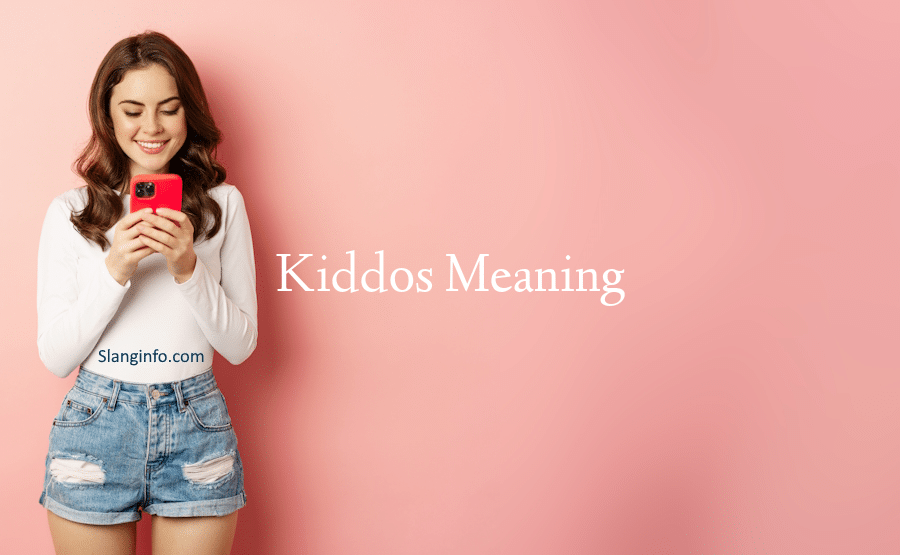
“Kiddos” isn’t just hanging out at family picnics anymore. It’s made its way into movies, TV shows, and books. Here are some fun examples:
- In the movie “Finding Nemo,” the dentist calls his patients “kiddos.”
- TV shows like “Modern Family” often have characters using “kiddos” for a laugh.
- Children’s book titles like “Goodnight, Kiddos” are popping up everywhere.
It’s like “kiddos” got an agent and is now making guest appearances all over pop culture!
Also read: SZN
The Great Kiddo Debate: Cute or Cringe? 🤔
Now, not everyone’s on board the kiddo train. Some people think it’s the cutest thing ever, while others find it a bit… well, cringey. Let’s break it down:
Team Cute Says:
- It’s warm and friendly
- It makes talking about kids more fun
- It’s a way to show affection
Team Cringe Says:
- It’s overused
- It can sound patronizing
- Adults should use “grown-up” words
Personally, I’m on Team Cute. I mean, have you ever said “kiddos” without smiling? It’s pretty much impossible!
How to Use Kiddos Like a Pro: Tips and Tricks 🎓
Want to sprinkle some “kiddos” into your convos? Here are some tips:
- Use it in casual, friendly settings. Maybe not at your kid’s parent-teacher conference.
- Say it with a smile. “Kiddos” is all about that warm, fuzzy feeling.
- Don’t overdo it. Like any good seasoning, a little goes a long way.
Remember, context is key. What sounds cute at the playground might not fly in a formal email to your boss!
Also read: GL Meaning
The Future of Kiddos: Here to Stay or Just a Phase? 🔮
So, what’s next for our friend “kiddos”? Will it stick around, or go the way of “groovy” and “rad”? Only time will tell, but here’s my prediction: “Kiddos” has staying power. Why? Because it fills a need in our language for a term that’s affectionate, casual, and just plain fun.
Plus, as long as there are parents trying to sound cool (and slightly embarrassing their kids in the process), “kiddos” will have a home.
Conclusion: Embracing the Kiddo Craze 🌈
Whether you’re a “kiddos” enthusiast or more of a traditional “children” person, there’s no denying that this little word has made a big impact on how we talk about young ones. It’s playful, it’s affectionate, and it’s got that special something that just makes people smile.
So next time you’re about to round up the young’uns for dinner or a trip to the park, why not give “kiddos” a try? You might just find yourself grinning as you say it. And in a world that could always use more smiles, that’s not a bad thing at all.
FAQs
Q: Is “kiddos” grammatically correct?
A: Yep! It’s an informal plural of “kid,” but it’s totally valid.
Q: Can I use “kiddos” in formal writing?
A: It’s best to stick to more formal terms like “children” in professional or academic contexts.
Q: Is “kiddos” only for little kids?
A: While it’s often used for younger children, some people use it for older kids too. It’s all about the vibe you’re going for.
Remember, language is always evolving, and what sounds weird today might be totally normal tomorrow. Just look at how “FOMO” went from internet slang to dictionary-approved in just a few years! So whether you’re team “kiddos” or not, keep an open mind – and maybe a sense of humor about the whole thing. After all, isn’t that what being a kiddo is all about? 😉

